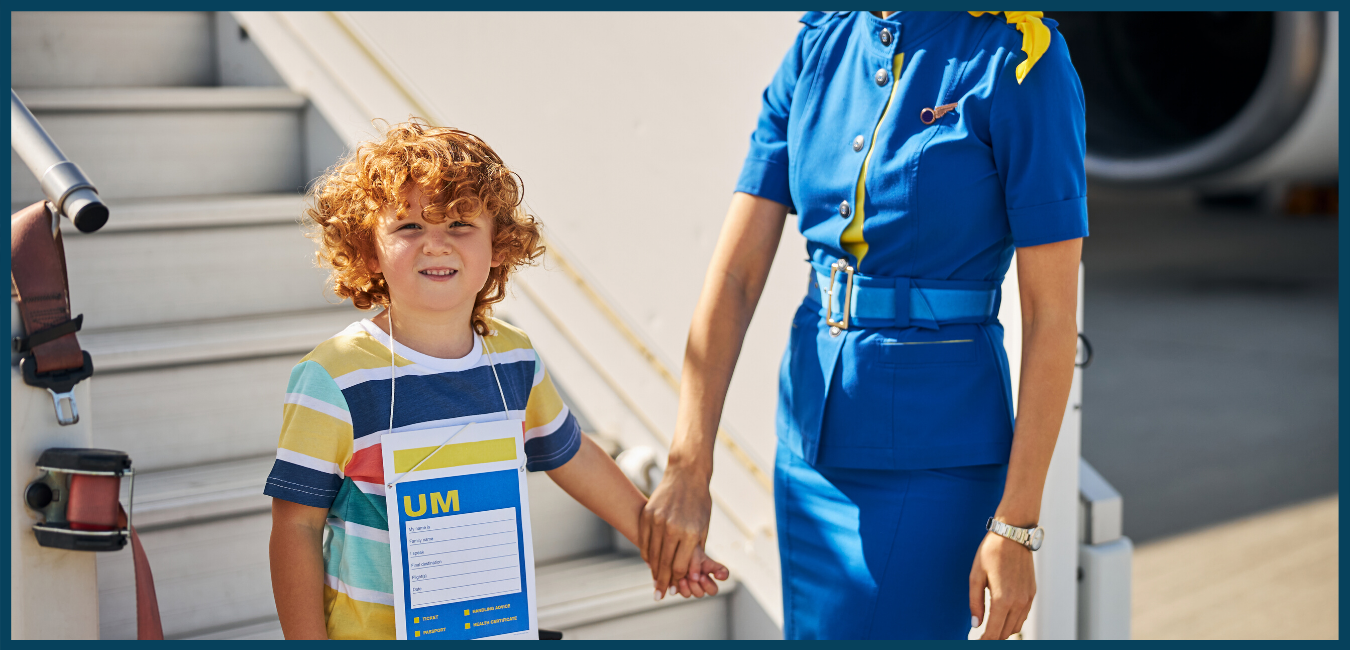A few years ago, I was on a flight back home, from the US. Now, I’m a pretty confident flier, but the turbulence that we went through on that flight was not for the faint-hearted, I can tell you! The guy next to me was spilling his coffee all over the place. The man in the middle section actually picked up his child’s cuddly toy and began speaking to it! And, the woman in front was looking like she was going to lose her s***!
We all made it though. Phew! It wasn’t until we landed that the captain told us that we had flown through “hurricane debris”! What?! Seriously?!
Regardless of how confident we are on an aeroplane, if that plane hits turbulence, there is one thing that most people have in common…we all look to the Flight Attendants. We’re closely monitoring their facial expressions, taking note of their body language and watching their every move.
What we’re basically asking is, “how scared should I be right now?”
Your children will go through many phases of turbulence in their lives. They will feel fear, and this fear may manifest as anger or anxiety. They will ask for your help. They will reject your help. They will feel uncertain. They will lash out. They will doubt the outcome of certain situations. They will blame you. They will grapple with their BIG emotions and feelings.
Holding Space and Co-Regulation
There are two terms flying around (no pun intended!) in the world of parenting today, which I love: ‘Holding Space’ and ‘Co-Regulation’. What this essentially means is that we can help children to wrestle their chaos by making sure that we don’t join them in it.
Here are 15 reactions you can expect from a Flight Attendant, and why they are the masters of Holding Space and Co-Regulation
- Before the plane has even set off, they will give us clear safety guidelines.
- If we are scared, they will ask if we need help.
- If we say, “yes”, they will give it.
- If we say, “no”, they will kindly give us space, but always with the reassurance that they are there if we need them.
- They will not join us in our panic.
- They will not judge us for our fear.
- They will not belittle us for our reaction.
- They will not laugh at us.
- They will not ignore us.
- They will not try to brush past it, or cajole us out of it.
- If we are angry, they will understand that this is how our fear is manifesting, and that this is the best we can do in that moment.
- They will remain calm, patient and attentive.
- If we go too far with our anger, they will, politely but assertively, let us know that we are abusing the ‘rules’ of the plane, and that it’s not OK.
- They will let us know that they have experienced it before and that everything will be OK.
- They will educate us about what has caused the turbulence, so that we have a greater understanding.
Until your child reaches the stage when they can start to get a better handle on their big emotions by themselves, and self-regulate, the greatest thing that you can do is HOLD SPACE and assist with that regulation. This ‘stage’ will be different for every child – there isn’t a golden point on the calendar when this should miraculously happen. It will be an ever-evolving process, which requires a whole batch of time and patience. Hey, there are even some adults who still struggle with this.
We all know though, that when we are feeling particularly anxious or vulnerable, the reactions and state of those around us has the power to either increase or decrease our uncertainty.
To quote the incredible Brene Brown: @brenebrown, “Who we are and how we engage with the world are much stronger predictors of how our children will do than what we know about parenting.”
So, next time your household flies through a big patch of turbulence, call on your inner Flight Attendant. Just don’t forget to turn on the ‘FASTEN SEAT-BELT’ sign!


